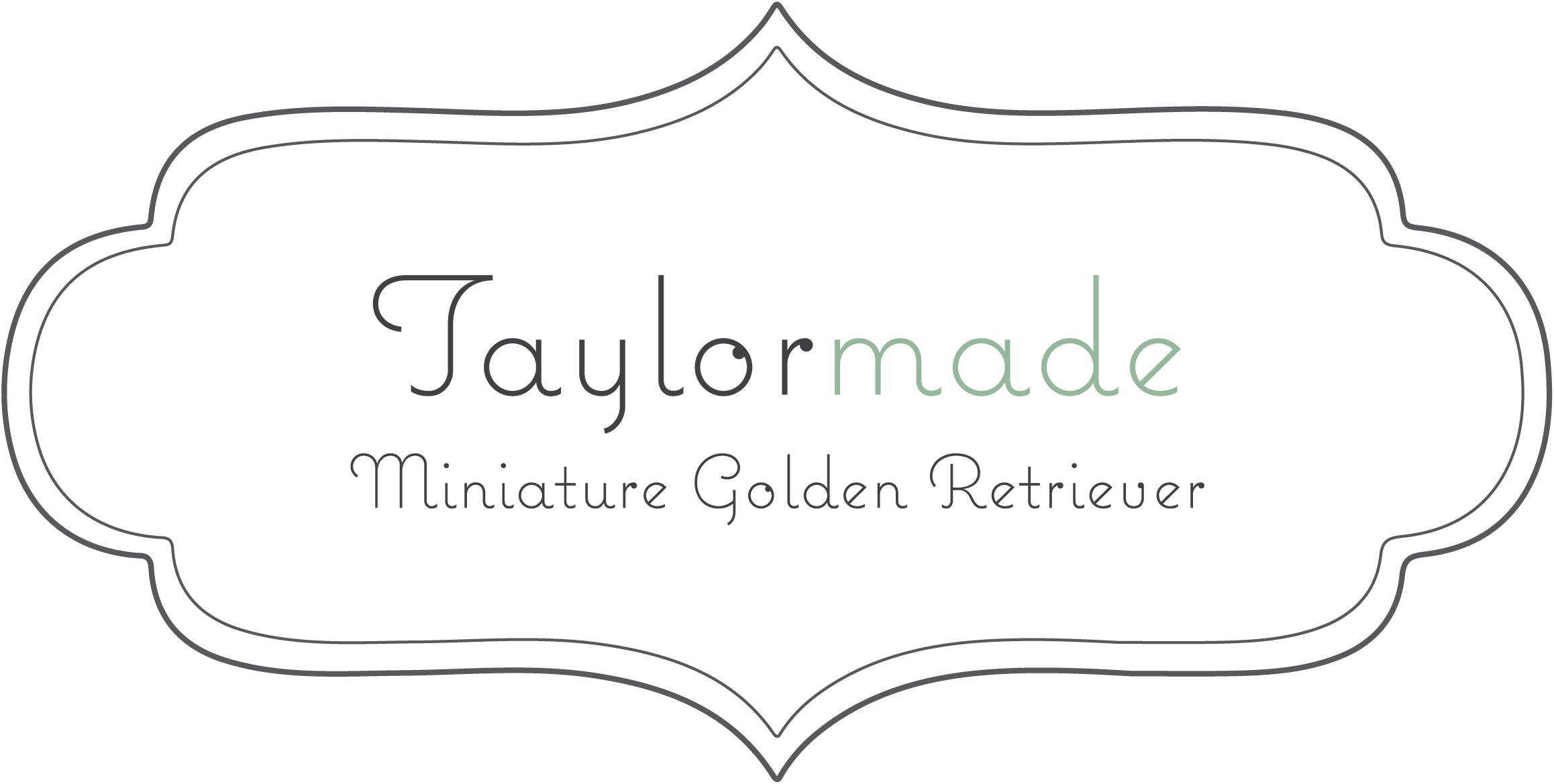Understanding Giardia: What Every Puppy Owner Should Know
As breeders who deeply care about the health and well-being of our puppies and the families they join, we believe it’s essential to educate our community about common health topics—especially the ones that are often misunderstood. One of those topics is Giardia.
You’ve probably heard the name before—maybe from your vet, maybe from a friend, or maybe after a routine fecal test came back “positive.” But what does it really mean? Let’s dive in.
What Is Giardia?
Giardia is a microscopic parasite that lives in the intestines. It’s not exclusive to dogs—many wild animals, domestic animals, and even humans carry giardia. According to several experienced breeders (and confirmed by our veterinarian), giardia is a natural part of the canine intestinal biome. In healthy dogs, it’s often kept in check by the natural balance of beneficial microbes.
In fact, a large number of dogs in North America have giardia in their guts without ever showing symptoms or needing treatment. 1
When Does Giardia Become a Problem?
Stress plays a huge role.
Events like weaning from mom, traveling to a new home, leaving littermates, or experiencing environmental changes can temporarily upset a puppy’s intestinal balance. This creates a window of opportunity for parasites like giardia and coccidia to multiply—often resulting in mild to moderate diarrhea.
That’s why it’s common to see soft stool or loose poop in the first few days after a puppy goes home. It’s not necessarily a sign of illness or neglect—just biology reacting to stress. We recommend a double dose of Gastro Pro Plus. Gastro Pro Plus contains probiotics, prebiotics, herbs that help sooth the gut and enzymes that help with absorption of nutrients.
The Trouble with Testing: What a Positive Fecal Test Really Means
This is where things can get confusing—and costly.
Many vets use what’s called a “giardia SNAP test,” which looks for antigens (a kind of protein marker) from the giardia cysts. But here’s the catch: the test can’t always tell if the cysts are alive or dead. So, a puppy that was already treated may still test “positive” even though there’s no active infection.
Our veterinarian confirms that a fecal test can remain positive for giardia indefinitely, even after successful treatment. That’s because Antigens of the parasite or DNA from the parasite can still be present in the stool without posing a health risk. Giardia is a common parasite in dogs, but here’s the good news: dogs and humans carry different strains. The type dogs carry (Giardia canis) is rarely transmissible to humans. Most if not all human cases come from contaminated water — not pets.
Some vets may unintentionally alarm new owners because there is a lot of scary things we read and they may see extreme cases, but the truth is: experts agree asymptomatic dogs don’t need treatment.1. Giardia often clears on its own, especially in healthy puppies. A positive test without symptoms is not a cause for concern.
Practicing good hygiene (like washing your hands after cleanup) is enough. No need to worry — Giardia is manageable and not a reason to miss out on puppy love!
Unfortunately, some veterinary clinics may prescribe additional medication simply based on a positive test, without determining whether giardia is actually causing symptoms or if the cysts are inactive. This can lead to unnecessary treatments, anxiety, and expenses for new puppy owners.
We’ve seen firsthand how some veterinarians use fear-based language, warning families that their children, other pets, or household could be at serious risk due to giardia—causing unnecessary panic. Families are often sent home feeling like they need to sterilize their entire environment, which simply isn’t realistic or necessary. Giardia is not some rare or deadly invader—it’s a naturally occurring organism, much like bacteria, yeast, and other microbes that live all around us. I say this as someone who’s a self-proclaimed clean freak—years ago, our own vet scared us into testing our family’s stool, over treating our puppy we got from a Breeder in Tennessee, and scrubbing every inch of our home obsessively. It was stressful, exhausting, and completely unsustainable. I share this because I want my puppy families to avoid that same fear and pressure. Cleanliness is important, of course—but so is understanding what is truly needed and what is simply overkill. Let’s focus on balance, common sense, and giving our puppies a happy, healthy start—not a sterile one.
Our Protocol: How We Prepare Our Puppies
To support your puppy’s health from the beginning, we use a preventative protocol that includes:
Safeguard or Panacur (fenbendazole) for 5–10 days before going home
Pyrantel at 2, and 4 weeks to address common worms
Paxaid & Vibactra-natural tinctures to help naturally combat parasites
Immunoshroom and Gastro Pro Plus to offer Support for healthy gut flora to strengthen the immune system
Despite these efforts, your puppy might still test “positive” after arriving home—not because they are sick, but because Giardia is part of life, especially for dogs raised with room to roam and to be dogs.
Why We Don’t Recommend Over-Treating
Our veterinarian warns against the overuse of metronidazole, a common medication prescribed for giardia. Repeated or unnecessary use of metronidazole has been linked to neurotoxicity, and GI upset especially in young or small dogs. It can also cause resistance to antibiotics.
That’s why we believe in building immunity, not bombarding the body with medication. The goal is to help your puppy develop a strong digestive and immune system capable of keeping common parasites in check, rather than relying on repeated drug interventions that may do more harm than good. As much as we would like to have a giardia free world for our dogs this can’t always fit in with our goals.
Dogs Will Be Dogs
We live in the beautiful Wasatch front mountains of Utah. Our dogs may get into a puddle and have a sip of puddle water, they might eat wildlife poop (no matter how much we say “no!” and redirect them), and they play in the mud and snow. They are healthy, active, and full of life.
This is nature—and Giardia happens.
Even with all the scary things we can read about it out there, I have learned to trust that giardia is not going to kill my dogs or puppies, we have never lost a dog or puppy to giardia. We have learned to promote immunity and trust the body’s ability to overcome with good nutrition, sunlight, exercise, cleanliness, and love. Building health and immunity is the best defense against all the things our puppies will face; bacteria, yeasts, and parasites.
Trying to prevent it completely would mean creating a sterile environment. But that’s not the life we want for our dogs—or yours. 2
Cleaning the environment
With that said, I am at the core a clean freak! Psalm 51:10 “Create in me a clean heart, Oh God” …and a clean home!
We do follow cleaning protocols given to us by our veterinarian for keeping things clean for our dogs and family.
🧪 Giardia-Specific Disinfection (Targeted Control)
To kill Giardia cysts, we take extra steps beyond basic cleaning:
Rescue® Disinfectant (Accelerated Hydrogen Peroxide) – Our go-to product for safe, effective disinfection of crates, floors, and tools. It kills Giardia when used as directed (with appropriate contact time).
Bleach (Diluted 1:32) – An effective alternative if Rescue is unavailable. However, bleach can damage fabric, clothing, and some surfaces — so we use it cautiously and sparingly.
Steam Cleaning – We regularly use a high-heat steam cleaner to sanitize floors, carpets, and hard-to-wash surfaces. Steam is highly effective at killing Giardia and does not rely on chemicals, making it safe for puppies.
🌡️ Additional Tips & Best Practices
Pick up stool promptly – Remove waste immediately to prevent environmental contamination.
Wash hands regularly – After handling puppies, cleaning up waste, or touching shared surfaces.
Rotate and disinfect toys – Keep a clean set of toys ready while others dry.
Use washable bedding – Launder with hot water and dry on high heat.
Empowered Pet Ownership
Since we do want to make sure the dogs and puppies have the proper protocols in place, we always take a stool sample to the puppies first vet visit here so that we can offer you the best information upon go home. If the puppy has a positive test we ask the right questions:
Is the giardia active or inactive?
Are there any symptoms?
Is treatment truly necessary?
Could the test be picking up treated cysts?
These are questions every puppy owner should ask their vet.
Being informed helps you advocate for your puppy’s health without over-treating, overspending, or over-worrying.
In Summary: Our Approach to Giardia
Giardia is common and often harmless.
Stress can trigger flare-ups.
Fecal tests may show positive even after treatment.
Over-treatment, especially with metronidazole, can be harmful.
We prioritize prevention, healthy immune systems, and treating only when truly needed.
Disclaimer:
We are not veterinarians. The information provided here is based on our experience, the advice of our trusted veterinarian, and best practices in responsible breeding. Always consult your own licensed veterinarian for medical advice tailored to your pet.
If you have questions or concerns about Giardia, we’re here to help guide you through it. Together, we can raise happy, healthy, thriving dogs—mud puddles and all.
https://todaysveterinarypractice.com/parasitology/update-on-giardiasis-diagnostics-treatment-and-management/
https://direwolfproject.com/direwolf-guardians/puppy-training/puppy-health/parasites-giardia/




